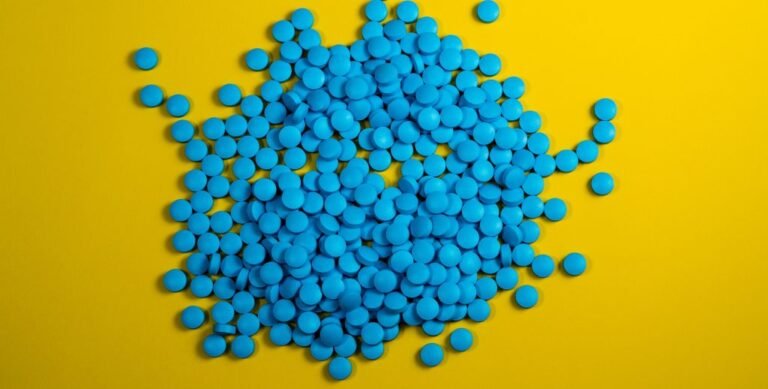Viagra, also available as a generic product called Sildenafil, is a game-changing drug for many people struggling with erectile dysfunction.
However, there are concerns and misconceptions about whether taking Viagra can put you at risk for sexually transmitted infections (STDs).
In this blog post, we will explore this topic so that anyone interested in taking Viagra can make the best decisions for their health.
Understanding Viagra
Before considering the possible connection between Viagra and STDs, it is necessary to have a basic understanding of how Viagra works.
Viagra does not protect against sexually transmitted diseases, nor does it increase the risk of contracting them. It is not an aphrodisiac or drug that promotes sexual desire.
Viagra tablets contain the active ingredient known as sildenafil citrate, which is a type of medicine called a phosphodiesterase type 5 inhibitor. It helps you get and maintain an erection by helping more blood to enter your penis when you are sexually aroused.
Sildenafil prevents an enzyme called phosphodiesterase type 5 (PDE5) from breaking down cyclic GMP. This allows the penile blood vessels to remain dilated for longer, which improves blood flow to the penis and helps produce and maintain an erection. You should still be able to have an erection for up to five hours after taking one dose.
Sildenafil will only work when the messengers responsible for causing an erection start to be produced. This means that you must be sexually aroused for sildenafil to create and maintain an erection.
Viagra and STDs: What’s the Connection?
The misconception about Viagra and STDs often stems from a misunderstanding of how these two aspects of sexual health are related. Taking Viagra itself does not increase the chance of contracting an STD.
However, there are indirect factors that could potentially contribute to this misconception.
Increased sexual activity
Some men may experience more sexual encounters once they start using Viagra, given their improved ability to maintain an erection. Increasing sexual activity can potentially put people at higher risk for STDs if proper precautions, such as condom use, are not taken.
Psychological factors
A successful experience with Viagra can boost self-confidence, leading individuals to engage in more sexual activities without considering the importance of safe sexual practices.
Alcohol and substance use
In some cases, people may mix Viagra with alcohol or recreational drugs, which can impair judgment and increase the likelihood of risky sexual behavior, including unprotected sex.
Prevention of STDs
It is important to remember that the relationship between Viagra and STDs is primarily a matter of personal choice and behavior.
To protect yourself from STDs, consider the following tips.
Safe sex practices
Always use condoms when engaging in sexual activity with a new partner or if there is any doubt about their sexual history.
Regular STD screening
Get tested for STDs regularly if you are sexually active and not in a monogamous relationship.
Open communication
Talk to your sexual partners about sexual health and be open about your concerns and boundaries.
Avoid mixing Viagra with alcohol or drugs
Alcohol and recreational drugs can impair judgment, increasing the risk of engaging in unsafe sexual practices.
Before taking Viagra
Viagra is available from doctors, clinics, pharmacies and online. Despite being so readily available, you should always discuss your case with a doctor and get advice about the suitability of this drug and the dose that is right for you before taking it. Taking Viagra carries the risk of side effects that you should be aware of before taking this drug.
Final thoughts
Viagra does not directly increase the risk of contracting an STD. However, it can contribute to risky behaviors that make you more likely to get an infection. The key to preventing STDs lies in practicing safe sex, communicating openly with your sexual partners, and making responsible decisions.
If you think you may have been exposed to an STD, get tested with Better2Know. You can speak to our Sexual Health Consultants who can help you find an STD test and clinic.
Call the number above and get in touch today.
